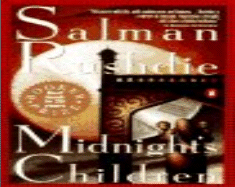![]()
Instructor: Prof. Cecilia Liu 
|
Salman Rushdie
Salman
Rushdie(1947) , a British novelist of Indian descent, was born in
Bombay, India.
Rushdie gained international recognition with Midnight's Children (1981), a contemporary tale that blends heroic fact and fiction. In 1995, Rushdie¡¦s collection of nine short stories ¡§East, West¡¨ appeared. The book is divided into three parts: East, West, and East, West: three stories set in the East, three in the West, and in the East, West part, the last three stories are about immigrants from the east living in the west. The first section East could have been written by the masterful Indian writer R.K. Narayan. The first story ¡§Good Advice is Rarer Than Rubies¡¨ is about a young Muslim woman seeking an immigrant visa to England. ¡§The Free Radio¡¨ is the second story about a young rickshaw driver who believes he will receive a free radio from the Government. When he discovers that reward scheme had already ended, he pretends he has received a radio. ¡§The
Prophet¡¦s Hair¡¨ is the third story of this section that talks about
a Kashmiri family. ¡@ |

